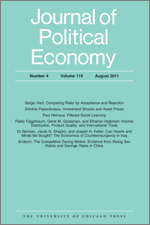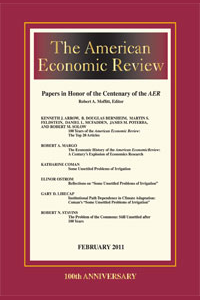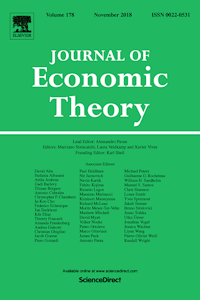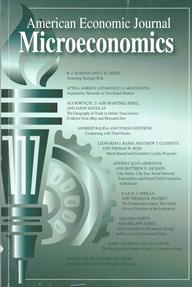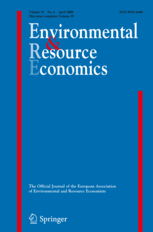
Dasgupta, P., Mitra, T. and Sorger, G.
Harvesting the Commons
Environmental and Resource Economics
Vol. 72(3) pp. 613-636 (2018)
Abstract: We study a socio-ecological model in which a continuum of consumers harvest a common property renewable natural resource. Markov perfect Nash equilibria of the corresponding non-cooperative game are derived and are compared with collectively optimal harvesting policies. The underlying mechanisms that drive open-access commons in our model are shaped by population size, harvesting costs, and the ecosystem’s productivity. If other things equal population is small relative to harvesting costs, unmanaged commons do not face destruction. More strikingly, they are harvested at the collectively optimal rate. Property rights do not matter in that parametric regime because the resource has no social scarcity value. However, if other things equal population is large relative to harvesting costs, open-access renewable natural resources suffer from the tragedy of the commons. Property rights matter there because the resource has a social scarcity price. The population size relative to harvesting costs at which the socio-ecological system bifurcates is an increasing function of the ecosystem’s productivity. A sudden crash in productivity, population overshoot, or decline in harvesting costs can tip an unmanaged common into ruin. The model provides a way to interpret historical and archaeological findings on the collapse of those societies that have been studied by scholars.
Keywords: Tragedy of the commons, Renewable resource, Intrinsic growth rate of resource, Human population growth, Cost of harvesting, Markov perfect, Nash equilibrium
JEL Codes: C73, Q20
Author links: Partha Dasgupta
Publisher's Link: https://doi.org/10.1007/s10640-018-0221-4 ![]()

